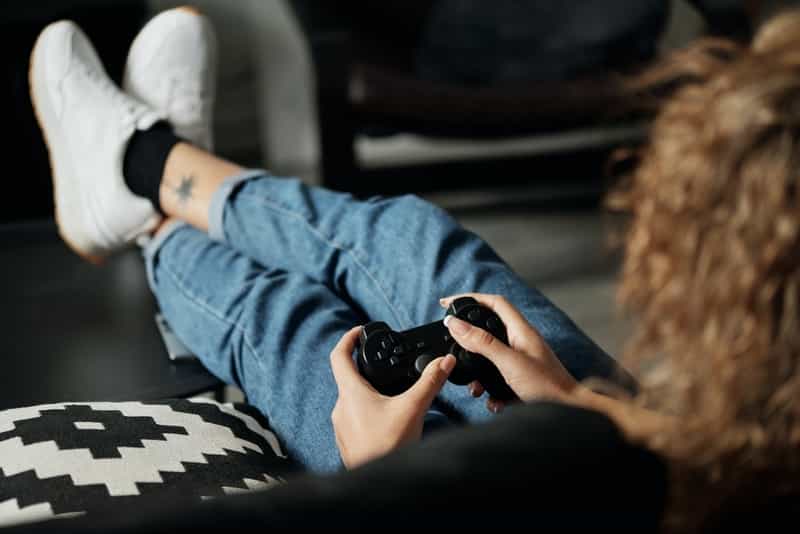Social anxiety is a form of anxiety that manifests in social settings. These can be events like being at a party, giving a speech, even standing too close to people on the subway can cause anxiety. More and more people are opening up about their mental health, and anxiety is often a prominent topic.
Mental Health is becoming a significant health concern. Therapies exist to help you understand where your anxiety comes from and what you can do to manage it. Mind Diagnostics provides confidential mental health quizzes that may assess whether you have a mental illness. For more information on their services, visit MindDiagnostics today.
In our age of digital media, video games have become a powerful weapon to promote mental health. Role-playing games offer players a chance to explore social interactions virtually and less threatening than in real life. Here are some of the positive effects of RPGs on mental health.
Personal growth
In their essence, RPGs are stories of the hero’s journey. A character goes on an adventure, equipped with a weapon and their view of the world.
As the plot advances, the character meets others with different worldviews that challenge their conceptions. These interactions may change the protagonist by seeing the world through other lenses.
Video game character arcs can demonstrate the hero’s journey interactively. An excellent example of this is Steiner from Final Fantasy IX. Initially an honor-bound knight sworn to protect the Crown, Steiner evolves after meeting Zidane, a thief. Through his interactions with Zidane, Steiner’s rigid adherence to honor comes into question. The story’s events further challenge his notions of loyalty and force him to question what morality truly means.
This character evolution can serve as a roadmap of sorts for players to see what actual change looks like at the other end of development. You may find inspiration in how a character finds redemption after living a life of crime like outlaw John Marsten does in the Red Dead Redemption games.
There is a vicarious thrill in rooting for an unlikely hero, especially when they start off far from the spectrum of a hero. It can also help us realize that a hero doesn’t have to start as one and that there may be a hero inside all of us.
Conflict resolution
RPGs develop stories about the human condition that exposes players to conflict and resolution in a tangible, less threatening way. Games such as Mass Effect and Fallout give players a chance to choose what type of character they wish to embody.
Do you approach situations with diplomacy?
Or do you reach for your sword and let your steel do the talking?
The answer may not be as clear-cut as IRL, but it still gives players a chance to explore these approaches without fear of judgment or consequence. Real-life conflicts may arise in our daily lives. The lessons we learn about conflict resolution in video games can better prepare us for real-life social interactions.
How we handle rude customers, sarcastic family members, bullies, or any interaction that can trigger anxiety can benefit from these lessons.
Addressing ethical and moral issues
Well-written RPGs also tackle ethical questions that show players the effects of social interactions. For example, The Elder Scrolls V depicts racism with the way that citizens treat Dark Elves. Non-playable characters will react differently to Dark Elves, allowing players to learn how opinions can differ and ultimately lead to conflict.
Often, anxiety may come from not knowing or understanding a person’s perspective. Perhaps we don’t know where someone is coming from or have trouble empathizing.
By playing video games that involve characters with different viewpoints and opinions, we can learn how others think and engage with them in ways we couldn’t before.
Identifying strengths and weaknesses
RPGs throw players into battle against hordes of enemies and villains, each with their attack style and specialties. For example, magic-based villains are resistant to physical attacks but have an elemental weakness. Plant-based monsters will absorb Water-based attacks but shrivel up when attacked with fire.
While these situations may not be identical to real-life situations, they engage players to analyze opponents’ weaknesses to develop strategies for success. This can translate into more nuanced approaches to handling conflict in real life.
Say you’re not the best at small talk, but you excel at debating. You can develop strategies to use your skills and expose yourself to different opportunities that utilize them and work on your weaknesses.
Developing perseverance
Boss battles present players with a final mission, a seemingly insurmountable challenge to test their newly acquired skills.
While losing may cause you to rage quit if you’re playing Dark Souls, the process of dying and losing works with mindfulness. Characters in RPGs get stronger with more play hours invested. This can build mental grit and focus on a goal applicable to real-life situations. Developing mental fortitude and rigor to continue training can build tolerance for monotonous tasks towards a greater purpose, like workouts in the gym to lose weight.
This also desensitizes players to losing. Failure can be paralyzing, so much so that they give up trying something new before they even begin. Dying in video games can instill perseverance and getting back up after a loss or defeat.
Final Thoughts
Please note that video games are not a substitute for professional help. Licensed therapists are a much more effective means of addressing anxiety and should be considered first.


